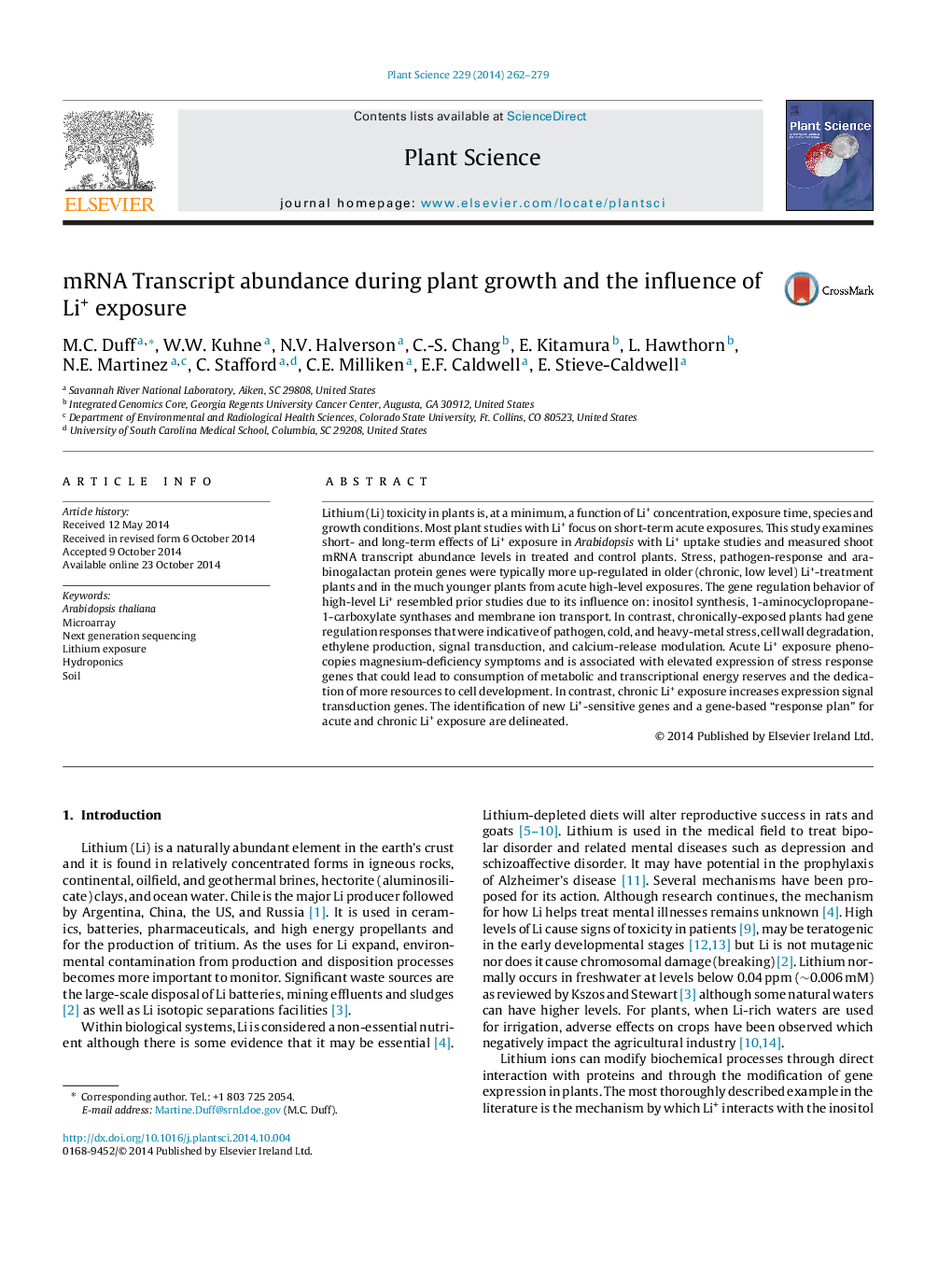| Article ID | Journal | Published Year | Pages | File Type |
|---|---|---|---|---|
| 8358086 | Plant Science | 2014 | 18 Pages |
Abstract
Lithium (Li) toxicity in plants is, at a minimum, a function of Li+ concentration, exposure time, species and growth conditions. Most plant studies with Li+ focus on short-term acute exposures. This study examines short- and long-term effects of Li+ exposure in Arabidopsis with Li+ uptake studies and measured shoot mRNA transcript abundance levels in treated and control plants. Stress, pathogen-response and arabinogalactan protein genes were typically more up-regulated in older (chronic, low level) Li+-treatment plants and in the much younger plants from acute high-level exposures. The gene regulation behavior of high-level Li+ resembled prior studies due to its influence on: inositol synthesis, 1-aminocyclopropane-1-carboxylate synthases and membrane ion transport. In contrast, chronically-exposed plants had gene regulation responses that were indicative of pathogen, cold, and heavy-metal stress, cell wall degradation, ethylene production, signal transduction, and calcium-release modulation. Acute Li+ exposure phenocopies magnesium-deficiency symptoms and is associated with elevated expression of stress response genes that could lead to consumption of metabolic and transcriptional energy reserves and the dedication of more resources to cell development. In contrast, chronic Li+ exposure increases expression signal transduction genes. The identification of new Li+-sensitive genes and a gene-based “response plan” for acute and chronic Li+ exposure are delineated.
Related Topics
Life Sciences
Agricultural and Biological Sciences
Plant Science
Authors
M.C. Duff, W.W. Kuhne, N.V. Halverson, C.-S. Chang, E. Kitamura, L. Hawthorn, N.E. Martinez, C. Stafford, C.E. Milliken, E.F. Caldwell, E. Stieve-Caldwell,
